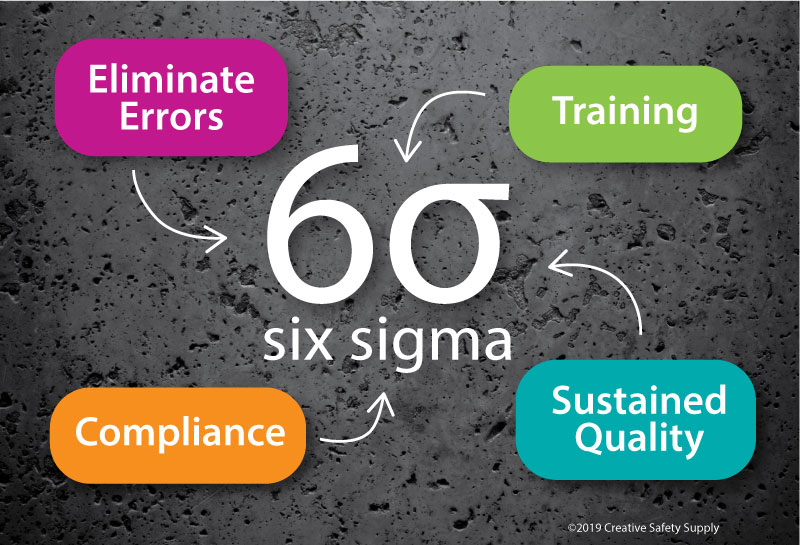Benefits of Lean Six Sigma
Lean Six Sigma is a powerful methodology that combines the principles of Lean Manufacturing and Six Sigma to improve process efficiency, reduce waste, and enhance overall quality. In this article, we will explore the numerous benefits of implementing Lean Six Sigma in your organization.
Enhanced Customer Satisfaction
One of the primary benefits of Lean Six Sigma is its ability to enhance customer satisfaction. By identifying and eliminating process inefficiencies, organizations can deliver products and services that meet or exceed customer expectations. Lean Six Sigma focuses on understanding customer requirements, reducing defects, and ensuring consistent quality, resulting in improved customer loyalty and positive word-of-mouth.
Increased Efficiency and Productivity
Implementing Lean Six Sigma methodologies leads to increased efficiency and productivity within an organization. By streamlining processes and eliminating non-value-added activities, organizations can optimize resource utilization and reduce cycle times. This results in improved productivity, reduced costs, and increased capacity to serve customers effectively.
Reduced Waste and Costs
Lean Six Sigma emphasizes the elimination of waste, which includes any activity that does not add value to the final product or service. By identifying and eliminating waste, organizations can reduce costs and improve profitability. Lean Six Sigma focuses on minimizing defects, rework, and unnecessary inventory, leading to significant cost savings.
Data-Driven Decision Making
Another key benefit of Lean Six Sigma is its reliance on data-driven decision-making. Organizations that implement Lean Six Sigma methodologies collect and analyze data to identify root causes of problems, measure process performance, and make informed decisions. This data-driven approach helps organizations identify improvement opportunities, prioritize projects, and monitor progress effectively.
Employee Engagement and Development
Implementing Lean Six Sigma encourages employee engagement and development. By involving employees in process improvement initiatives, organizations empower them to contribute their ideas and expertise. This involvement fosters a culture of continuous improvement and provides employees with opportunities to develop new skills and knowledge. Engaged employees are more motivated, leading to higher job satisfaction and retention rates.
Improved Competitive Advantage
Lean Six Sigma provides organizations with a competitive advantage by enabling them to deliver superior products and services. By continuously improving processes and reducing defects, organizations can differentiate themselves from competitors. Customers are more likely to choose organizations that consistently deliver high-quality products and services, giving organizations a competitive edge in the market.

In conclusion, implementing Lean Six Sigma methodologies offers numerous benefits to organizations. From enhanced customer satisfaction and increased efficiency to reduced waste and costs, Lean Six Sigma provides a framework for continuous improvement and sustainable success. By adopting Lean Six Sigma, organizations can achieve operational excellence and gain a competitive advantage in today’s dynamic business environment.
Frequently Asked Questions about the Benefits of Lean Six Sigma
1. What is Lean Six Sigma?
Lean Six Sigma is a methodology that combines Lean principles and Six Sigma tools to improve processes, reduce waste, and enhance overall efficiency and quality.
2. What are the key benefits of implementing Lean Six Sigma?
The key benefits of implementing Lean Six Sigma include improved customer satisfaction, increased productivity, reduced costs, enhanced quality, and streamlined processes.
3. How does Lean Six Sigma improve customer satisfaction?
Lean Six Sigma helps identify and eliminate defects, errors, and inefficiencies in processes, leading to improved product or service quality and ultimately higher customer satisfaction.
4. Can Lean Six Sigma help reduce costs?
Yes, Lean Six Sigma focuses on minimizing waste and optimizing processes, which can lead to significant cost reductions by eliminating unnecessary steps, reducing defects, and improving resource allocation.
5. How does Lean Six Sigma enhance quality?
Lean Six Sigma provides tools and techniques to identify and address the root causes of defects and errors, leading to improved quality control and assurance throughout the entire process.
6. Does implementing Lean Six Sigma increase productivity?
Yes, Lean Six Sigma aims to streamline processes, eliminate non-value-added activities, and improve workflow, which ultimately results in increased productivity and efficiency.
7. Can Lean Six Sigma be applied to any industry or sector?
Yes, Lean Six Sigma principles and tools apply to various industries and sectors, including manufacturing, healthcare, finance, logistics, and service-based organizations.
8. How long does it take to see the benefits of Lean Six Sigma implementation?
The timeframe for experiencing the benefits of Lean Six Sigma implementation varies depending on the complexity of the processes, the level of implementation, and the organization’s commitment. However, significant improvements can often be observed within a few months.
9. Are there any potential challenges in implementing Lean Six Sigma?
Yes, some common challenges in implementing Lean Six Sigma include resistance to change, lack of management support, inadequate training, and difficulties in sustaining the improvements over the long term.
10. Can Lean Six Sigma help organizations become more competitive?
Lean Six Sigma enables organizations to optimize their processes, reduce costs, improve quality, and deliver better value to customers, which ultimately enhances their competitive position in the market.




